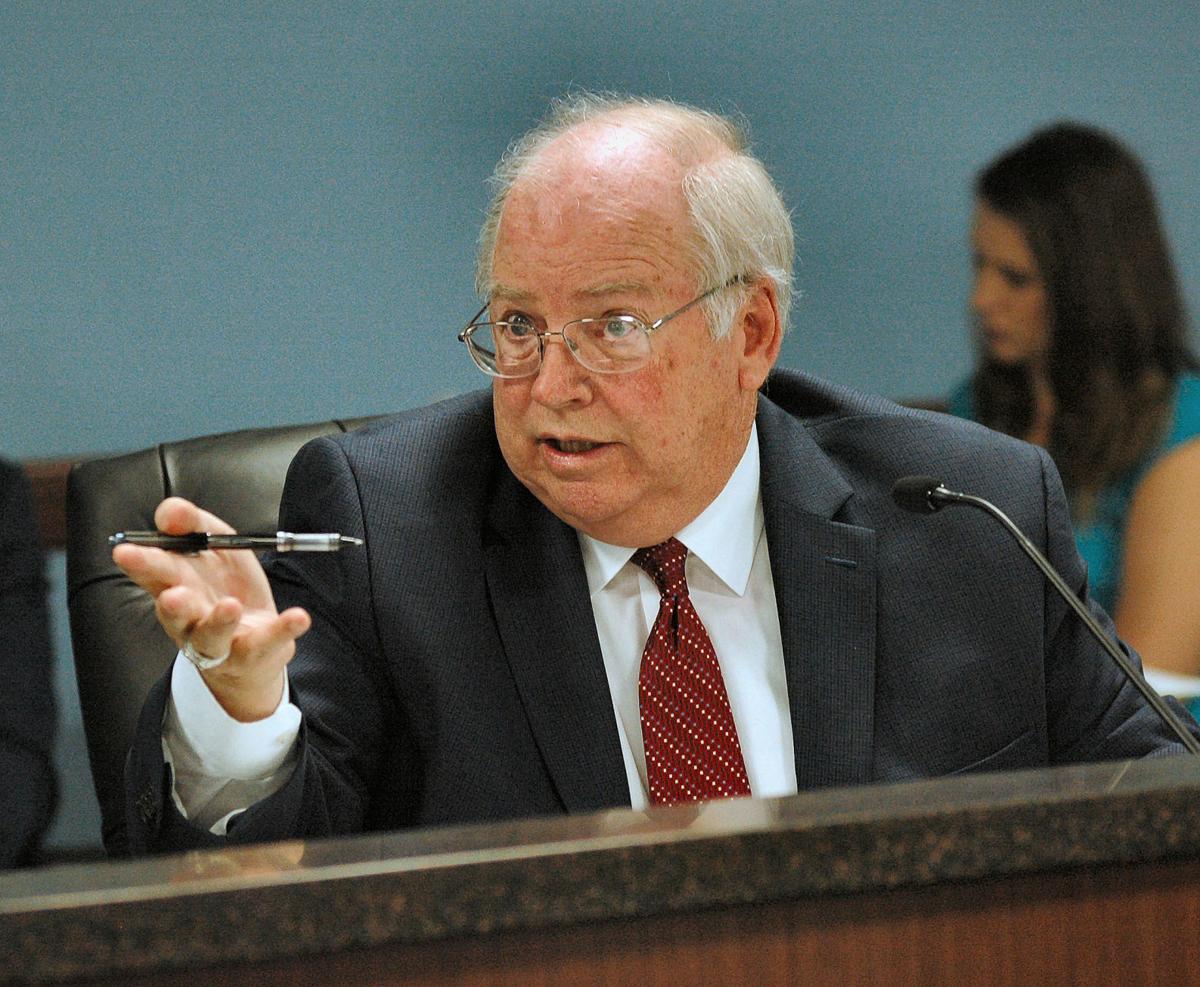PHOENIX — The Attorney General’s Office is investigating whether a utility regulator and officials of three cities and three counties acted illegally in the way they urged voters to oppose the renewable-energy ballot measure.
In letters to each, Assistant Attorney General O.H. Skinner pointed out that state laws specifically prohibit the use of public resources for political purposes. That includes urging people to vote one way or another on ballot measures, he said.
Skinner wants them to explain why their actions should not be considered a violation of those laws, and why they should not pay a fine.
In the case of Andy Tobin, a member of the Arizona Corporation Commission, he had the agency’s public information officer, a state employee, send out a press release announcing his opposition to Proposition 127, the renewable-energy mandate.
Less clear is whether the officials in Chino Valley, Snowflake and Pinetop-Lakeside, in adopting resolutions in opposition to Proposition 127, used “public resources.” All three got letters from Skinner asking for answers, as did officials from Navajo, Greenlee and Gila counties.
Prop. 127, if approved, would require utilities including Arizona Public Service to generate at least half of their power from renewable sources by 2030. It would override a current Corporation Commission goal of 15 percent by 2025.
There are two separate complaints.
The one against Tobin stems from the press release he issued earlier this month, on his official letterhead and through the commission’s paid public information officer.
Bob Burns, another commission member, complained the press release violated the law on the use of public resources to influence an election. The commission chose to refer the matter to the Attorney General’s Office.
A separate complaint filed by state Rep. Ken Clark, D-Phoenix, said APS employees have been “badgering” county and local officials and their staffs with requests to adopt formal resolutions opposing Proposition 127. The Energy and Policy Institute, through public records requests, has found several instances where APS officials sought to make presentations on the initiative to local lawmakers.
Clark, in his letter to the Attorney General’s Office, cited a series of laws prohibiting state, county and local governments from using their resources to influence elections.
“Those laws were designed to keep special interests from usurping public dollars for a private purpose — that is, to amplify support or opposition to purely campaign matters,” he wrote.
Skinner, in his letters Thursday, cited the statutes barring the use of public funds to influence the outcome of elections. “A knowing violation of this provision would be a particularly serious matter,” he wrote.
Skinner gave all the officials until Nov. 8 — two days after the general election — to respond.
That date reflects the fact that people subject to such requests normally are given two weeks to answer, said Ryan Anderson, a spokesman for the Attorney General’s Office.
Tobin denied violating the law.
He said he had been approached by multiple reporters asking his position on the ballot measure, particularly as to how it compared with or would affect his own proposal to require utilities to produce 80 percent of their energy from “clean” sources by 2050.
Tobin also said he believes the commission’s constitutional obligation to set energy policy and keep rates down gives him the legal permission to weigh in on anything that affects those duties. Tobin said that while he expressed his personal views in the press release, he never specifically urged anyone to vote against the initiative.
Burns was unconvinced, saying any right that Tobin has to talk with reporters or others “is not the same as using the commission’s resources to basically take a position, and a public position.”
While the ACC voted to forward the complaint to the Attorney General’s Office — with Tobin’s blessing — Tobin lashed out at Burns for making it a public issue. “This is a show that’s put on to attract attention and harbor ill will toward me,” he said.
Matthew Benson, spokesman for the APS-financed anti-127 campaign, said the issue of the town and county resolutions is a bit different. He contends that it did not violate the law for APS to urge public officials to approve resolutions against the initiative.
“We’re talking about rural communities that passed a resolution alerting their constituents to a concern on the ballot,” Benson said.
He called any expense of public funds too trivial to merit consideration under the law.
“The law says that there has to be some sort of an expenditure from the general fund of that public body,” Benson said. “I want you to tell me what that resolution cost.”
It will be up to Skinner — and a judge if he finds reason to believe the law has been violated — to determine whether the resolutions amount to an improper use of public resources.
Attorney General Mark Brnovich is not involved in the inquiry, Anderson said.
He said Skinner, as chief counsel of the agency’s government accountability, special litigation and antitrust section, has independent authority to initiate and pursue such investigations.





